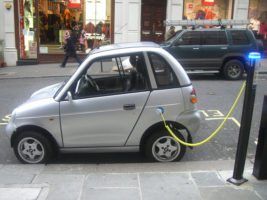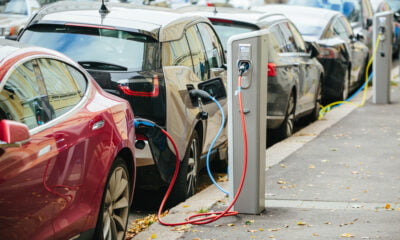

Energy
How can the Electricity Network Prepare to Support The Increasing Electrical Vehicle Demand?
An innovation project is now underway to assess how the UK electricity network will cope with growing future ownership of the electric vehicle (EV).
The Smart EV project is today launching its Consultation on Managed EV Charging at the Low Carbon Networks Innovation Conference in Manchester. The Consultation invites stakeholder views to ultimately secure a standardised industry-wide agreement for the connection, charging and control of electric vehicles.
The project’s ultimate aim is to achieve agreement across a number of industries on the best way to help facilitate the roll out of controlled EV charging. In doing so, it will enable significantly larger numbers of EVs to charge on today’s local electricity distribution networks, with sizeable reduction in investment costs, customer bills and disruption.
The project is being run by electricity network distribution operator, Scottish and Southern Electricity Networks (SSEN) and power engineering company EA Technology – funding is being provided through Ofgem’s Network Innovation Allowance.
Based on the current and forecast rate of EV adoption, sections of the electricity network will need upgrading to match the future demand of electric vehicle ownership. To help offset the need to spend billions in reinforcing the network, the Smart EV project is aiming to find a cross-industry technical solution to ensure the current electricity infrastructure can cope with the increase in electric vehicle charging on the network.
Stewart Reid, Head of Asset Management & Innovation at SSEN, said: “As more people plug their vehicles in to charge, the more electricity is needed to match the demand. If this is being done at a time when demand is already high – such as in the evening around tea-time – this could put pressure on the electricity network, which could result in power cuts or disruption in supplies.
“The Smart EV project will help provide a safe and secure electricity network that can support the wide-scale adoption of electric vehicles, while reducing investment costs, customer bills and disruptions.
“Our research predicts that using smart technology, rather than digging up the roads to install new cables, will result in an economic saving of around £2.2 billion by 2050.[1]”
Dave A. Roberts, Director – Smart Interventions at EA Technology, said: “We need to find a standardised method to control the charging of EVs. The Smart EV project will seek to provide a national engineering recommendation, or equivalent, for the connection, charging and control of electric vehicles.
“We need the input of as many relevant stakeholders as possible – if you are a charging point manufacturer, installer, EV manufacturer, policymaker or anyone involved in the associated supply chain, please take part in the consultation.”
To respond to the Smart EV Consultation on Managed EV Charging, which closes in December 2016, please visit smartEV.eatechnology.com.
[1] Findings from My Electric Avenue


 Environment12 months ago
Environment12 months agoAre Polymer Banknotes: an Eco-Friendly Trend or a Groundswell?

 Features11 months ago
Features11 months agoEco-Friendly Cryptocurrencies: Sustainable Investment Choices

 Features12 months ago
Features12 months agoEco-Friendly Crypto Traders Must Find the Right Exchange

 Energy11 months ago
Energy11 months agoThe Growing Role of Solar Panels in Ireland’s Energy Future




























